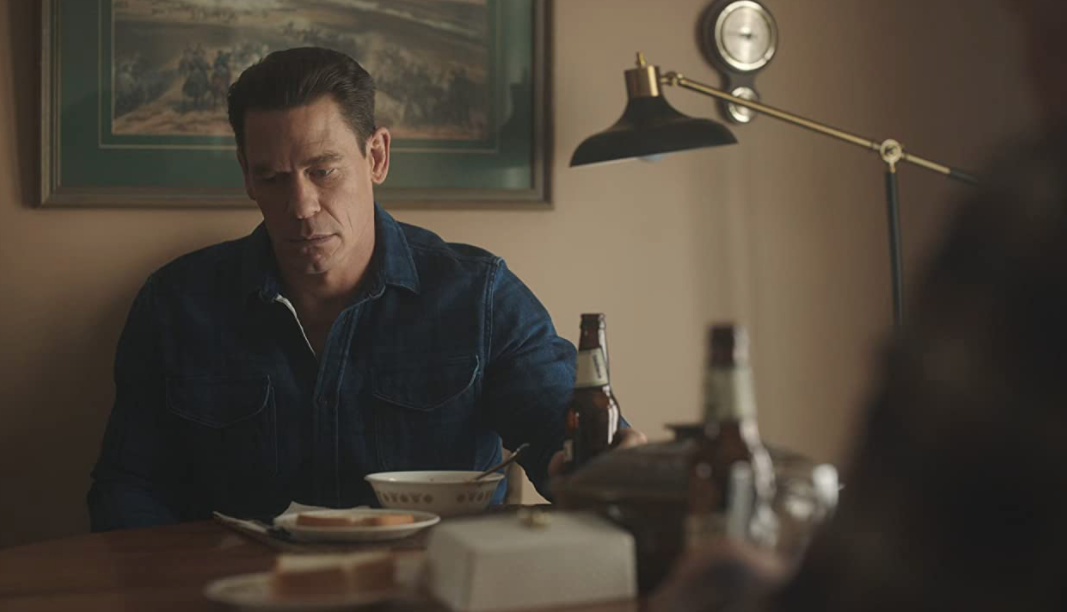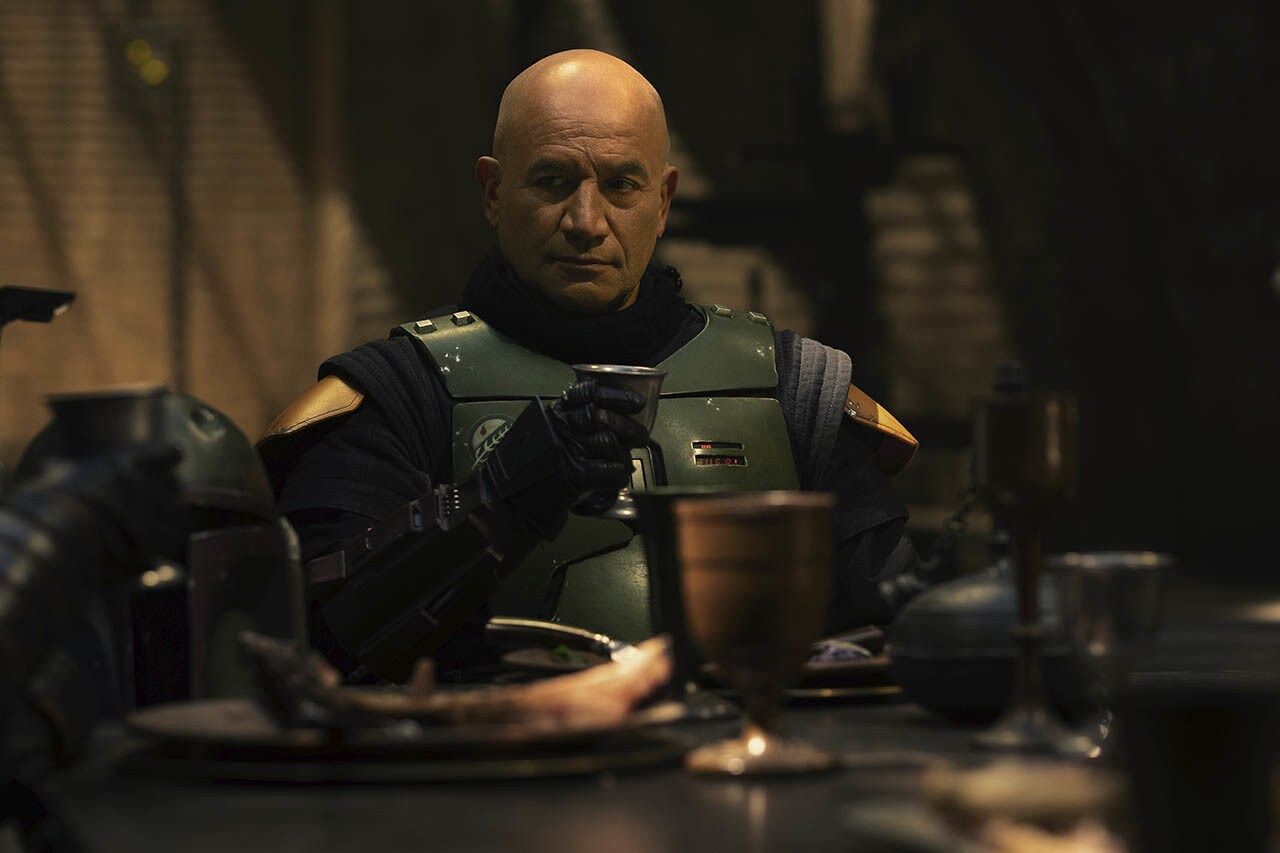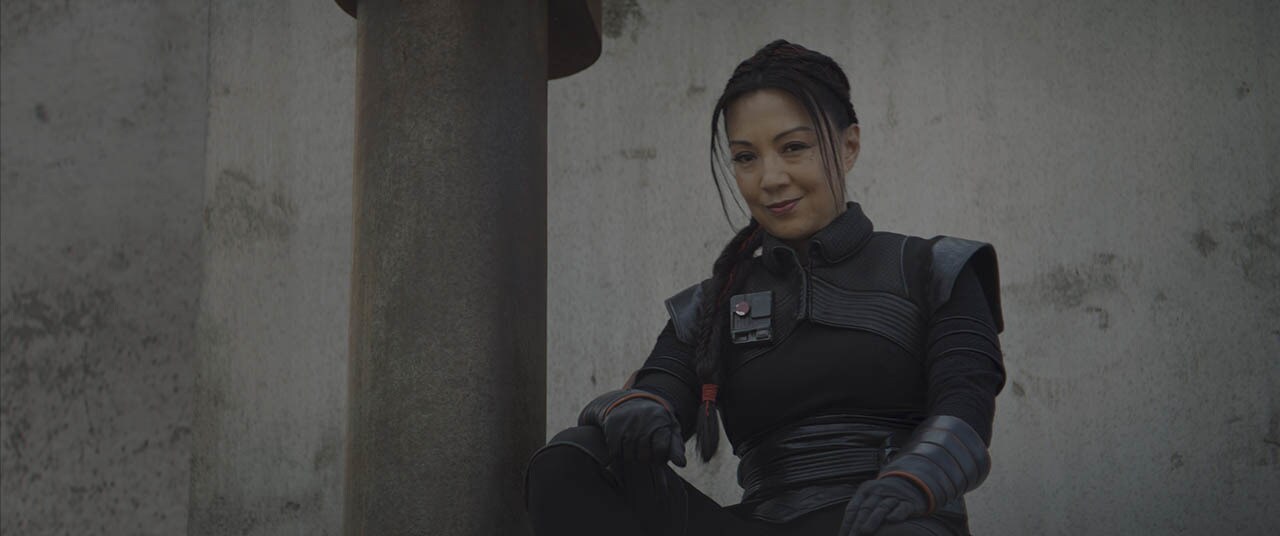The Book of Boba Fett vs Peacemaker: Where did Boba go wrong?

The Book of Boba Fett and Peacemaker kicked off in the same week but their fortunes could not be more different.
Nobody expected Peacemaker to be any good and it turned out to be a hit, underscored by great writing and a strong cast with breakout performances from John Cena and Freddie Stroma, who played Peacemaker and Vigilante respectively.
On the other hand, The Book of Boba Fett was highly anticipated by virtue of Boba Fett's (Temuera Morrison) popularity but while it did have its moments, it will largely be seen as somewhat of a blot in an otherwise pristine copybook of Dave Filoni and John Favreau's Star Wars revolution thus far.
But here are the four key reasons why I think Peacemaker did well where The Book of Boba Fett did not.
When Fett faced off Cad Bane in the season finale, Bane pretty much took the words out of my mouth: "What's your angle?"
If Cad Bane, who has known Boba practically his entire life and is a master of figuring out his opponents' psychology in order to gain an edge, can't make any sense of Boba's "face" turn, then what chance do we have?
While the show established that Boba was tired of having to take up meaningless missions from undeserving bosses and was moved by his time spent with the Tusken Raider tribe, there was very little emotional connection - aside from Chapter 2 - in establishing that shift in his priorities. It almost seemed like he unironically decided it to be so and that was that.
On the other hand, Peacemaker's manchild persona was far more nuanced, which is sort of amusing when you consider that when standing next to a faceless character from a science fiction space opera, Peacemaker comes across as more of a joke.

But James Gunn's clever show takes the 'bro-ey, douchey Captain America' established in the Suicide Squad, broke him down, and humanised his character and his childhood trauma. It linked the broken boy to the Rick Flagg killer and set him on a redemption arc where he discovers friendship and questions his values.
Ultimately, it is his friends that help him break the cycle of toxicity that is his father's looming presence, but not without cost. Peacemaker is unable to escape his past entirely, however, and it is hinted that despite his character growth, he will have to constantly battle the ghosts of his past.
Between Peacemaker and Fett dealing with the pain of their losses - you only truly feel for one of them. Guess whom?
Some people have an issue with the way that the flashbacks were played out in The Book of Boba Fett as they wrecked the pacing of the show shuttling between the past and the present.
I take a slightly different view, though not a positive one too. The show had little time to waste in trying to cram a convincing backstory and yet were prepared to use two episodes for Din Djarin and Grogu.
Not that I'm complaining, but that means that there were four episodes to bring us up to speed (since the finale is all about resolution rather than set up). It all felt a bit rushed and unfulfilling.
In contrast, Christopher Smith's (Peacemaker) flashbacks were fleeting but they were woven in to contextualise Smith's traumatic episodes. It consistently clues us in on why Smith behaves the way he does; why is he is so fixated with 80s hair metal; why he cannot seem to break out of his arrested development.
As such, we can easily empathise with this flawed anti-hero who's actually only 85 per cent "a piece of sh**" - there's a good guy in there after all.

With Fett, we have no idea why he makes the decisions that he makes - he simply explains why and we can only take it at face value. It's a shame because episode two was splendid.
The customs of the Tusken Raiders are given their due reverence, and in terms of lore, it was a wonderful bit of visual storytelling. You can argue that it went on for far too long considering the time constraints but I think it was great to be able to enjoy the moment.
We witnessed Fett buying into what the Sand People stand for and you get a sense he proactively wants to contribute to the well-being of his newfound family. He is enjoying - for once - a relationship that isn't transactional.
Unfortunately, we are never shown why he is willing to let go of his old life for his new one and his newfound family is unceremoniously killed off. Unless they mean to say that Fett is like an old school dad that never talks about his feelings and hides behind a facade…
From start to finish, Fett remains essentially the same character. He is unwavering in his beliefs, which isn't a bad thing, since at this moment he's supposed to be somewhat of a paragon for the values of honour and respect.
In this case, being steadfast in the face of adversity is actually a good thing. But you already know where this is heading.
Yup, it all boils down to the same question: Why is he so invested in his new values?
[[nid:566777]]
We get a sense of it if we follow the Star Wars canon - Fett is a man who lost his family at an early age and has yet to find a place to belong, and the near-death experience coupled with his time in a tribe who accepted him as one of their own, set him on his way. But profound changes do call for profound emotional development, which we got none of.
In the Mandalorian, Fett was portrayed as honourable as well, but he always gave us a sense that he always has a pistol cocked somewhere and somehow, always prepared for the moment you double-cross him.
He wasted no time in jumping into a scrap with Koska Reeves (Mercedes Varnado aka Sasha Banks) and is completely different from the Fett we see here in his own show.
That version of Fett felt believable as the infamous bounty hunter extraordinaire from the original trilogy. And yet, that was technically the same Fett shown in The Book of Boba Fett.

Cena's Peacemaker, on the other hand, finds himself a new family as well - one that he desperately wants - but not before having to make a difficult choice presented by Goff (Antonio Cupo) in the season's final moments.
Peacemaker has to choose between a seemingly noble cause to save the world from itself at all costs or protect his newfound friends and family. He chose family. As he explained to Leota Adebayo (Danielle Brooks), he would have had to kill his friends if he decided on helping the Butterflies save the world.
Smith's character turn comes at a great cost, and as the ending shows, it is a price he will continue to pay even moving forward. As such, we see the value and weight of the decisions he made, even we're given a somewhat "happy" ending.
[[nid:563639]]
With Fett, we get nothing from him. Even when provoked by Cad Bane, we have no clue if he was truly angry or he simply felt that he needed to make a statement there and then.
More importantly, there's precious little information that helps us dial in on what he's thinking, which I find is an ongoing issue throughout the series.
The only moment where he actually seemed to convey some semblance of emotion, stemmed from a moment of an unspoken admiration of Djarin's decision to stand by his side, even if it meant their end. Yet by the end of the show, Fett is still the same simple man making his way through Mos Espa on foot.
Even Djarin goes through more emotional growth in the three episodes that he appears in. Having been cast out from the Children of the Watch, he now lives by values that are distinctly his own. The way is in fact, regardless of whether he's aware of it or not, his way.
Fett's sidekicks Fennec Shand and Black Krrsantan are characters that do not go through any character development - they simply just go about doing their thing like Non-Player Characters in a video game.
Ironically, it's the much-maligned Mods who kind of "grow up" and drop a bit of that too-cool-for-school-vibe as their respect for Fett and Shand's new-age, old-school parenting grows.
But just like how the citizens of Mos Epa responded post-battle, it's implied rather than cemented in a pivotal moment. It's all well and good if the characters are peripheral to the plot; to the bigger picture, but there isn't enough of a compelling story arc here. So these little bits stick out like a sore thumb.

Yet in Peacemaker, they've managed to squeeze in credible character developments or backstory expositions for Adebayo, Vigilante, Clemson Murn (Chukwudi Iwuji), Emilia Harcourt (Jennifer Holland) and John Economos (Steve Agee).
Economos in particular gets an extremely tender moment in the midst of a life-or-death situation. He finally reveals his true feelings about a side gag that has been set up throughout the entire show: his dyed beard.
It's a moment so self-aware and perceptive that even the butterflies are fooled into thinking that it wasn't Economos the human who was speaking so introspectively about his own failings. It's brilliant on so many levels.
Economos finally lays himself bare to his teammates and at the same time, it guilts Peacemaker for the many times he's bullied Economos for his shortcomings. And yet it's an implicit show of appreciation that Peacemaker cared enough to notice the little things he did and he was genuinely grateful for the attention that no one gave him.
It's also a subtle callback to the moment when Harcourt claimed she knew he was faking his illnesses but she simply didn't "give a f***." All these little details have a payoff - it's incredibly nuanced stuff for a "dumb" TV show.
No, it's not, because the reality, is that The Book of Boba Fett is essentially lore filler for the Star Wars Universe.
It's like an assortment of stories that fill in the blanks. From that perspective, I guess you can get away with not developing characters fully because their primary role is to help set things into motion for the bigger picture.
However, I don't think that this is how people would see it, which is why the public reacted so negatively to how Fett was portrayed. And I think the reaction is a fair one - it is the beloved Boba Fett after all.
We can argue that it's possible that no one will be satisfied regardless because of possibly unrealistic expectations, but it is what it is. You chose to tell this story, you have to accept that burden.
And yet, Peacemaker showed us what can be accomplished with a third-rate superhero - that no one had any interest in - if the writing is excellent.
Sure, it's easy to overachieve if no one had even a sliver of optimism. But that would be utterly disrespectful to the level of quality that Peacemaker delivered, week in, week out.
This article was first published in Potions.sg.